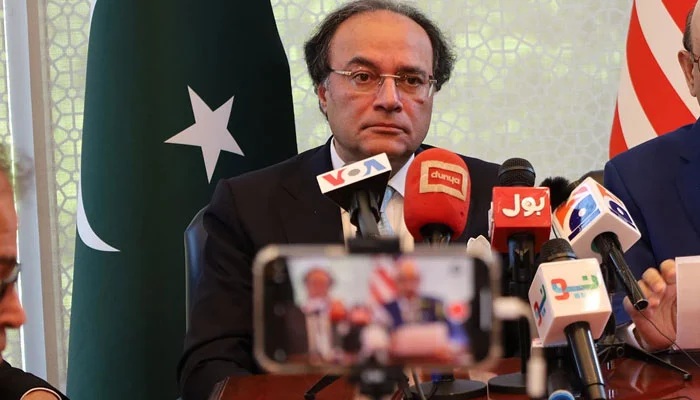Finance Minister Muhammad Aurangzeb’s recent interaction with Pakistani journalists at the embassy in Washington DC sheds a promising light on Pakistan’s economic trajectory. The minister’s confidence in having “overwhelming support” from Washington and globally signals an opportune moment for Pakistan — a moment that must not be squandered.Minister Aurangzeb’s outline of upcoming engagements with the IMF and the anticipated flow of funds is a testament to Pakistan’s ongoing efforts to stabilize its economy. Expected in May, the IMF delegation’s visit is a critical juncture that could define the financial landscape of the country for the coming months.
It is imperative that Pakistan prepares diligently to meet the IMF’s expectations and secure the next portion of the loan, slated for June or July.Furthermore, the acknowledgment of World Bank President Ajay Banga’s role in fostering initiatives in climate, digitization, and human capital within Pakistan is noteworthy. These areas are crucial for sustainable development and speak to a broader vision of progressive governance. The World Bank’s involvement in long-term projects focusing on health, education, and combating child stunting aligns with essential developmental goals that Pakistan must prioritize.
However, challenges remain, particularly in tax reform. The Finance Minister’s concern over the Rs. 1.3 trillion worth of pending tax cases highlights a significant bottleneck in fiscal management. The push towards digitalization of tax collection is a step in the right direction, promising efficiency and transparency. Yet, action must follow swiftly. The disparity between the lifestyle of influential politicians and their declared assets underscores a broader issue of tax evasion that needs immediate redress. Through digitization and data analytics, Pakistan can enhance its tax net, ensuring that all due contributions are accurately collected and reported.
The Minister’s pragmatic response to enhancing trade relations with both India and Afghanistan illustrates a forward-thinking approach to regional cooperation. This mindset should be harnessed to bolster Pakistan’s trade frameworks, potentially stabilizing the region economically.However, external challenges such as the recent U.S. sanctions on Chinese companies assisting Pakistan’s ballistic missile program remind us of the geopolitical intricacies that Islamabad must navigate. The financial repercussions of such sanctions are yet unclear, but they underscore the importance of maintaining strategic international relationships and adapting to global economic shifts.
In conclusion, as Minister Aurangzeb rightly stated, the “ball is in our court.” It is time for Pakistan to deliver on its promises and implement robust reforms. The path ahead is fraught with challenges, but with concerted efforts and strategic planning, Pakistan can achieve economic stability and growth. The government must act decisively, ensuring that its actions indeed speak louder than words.







